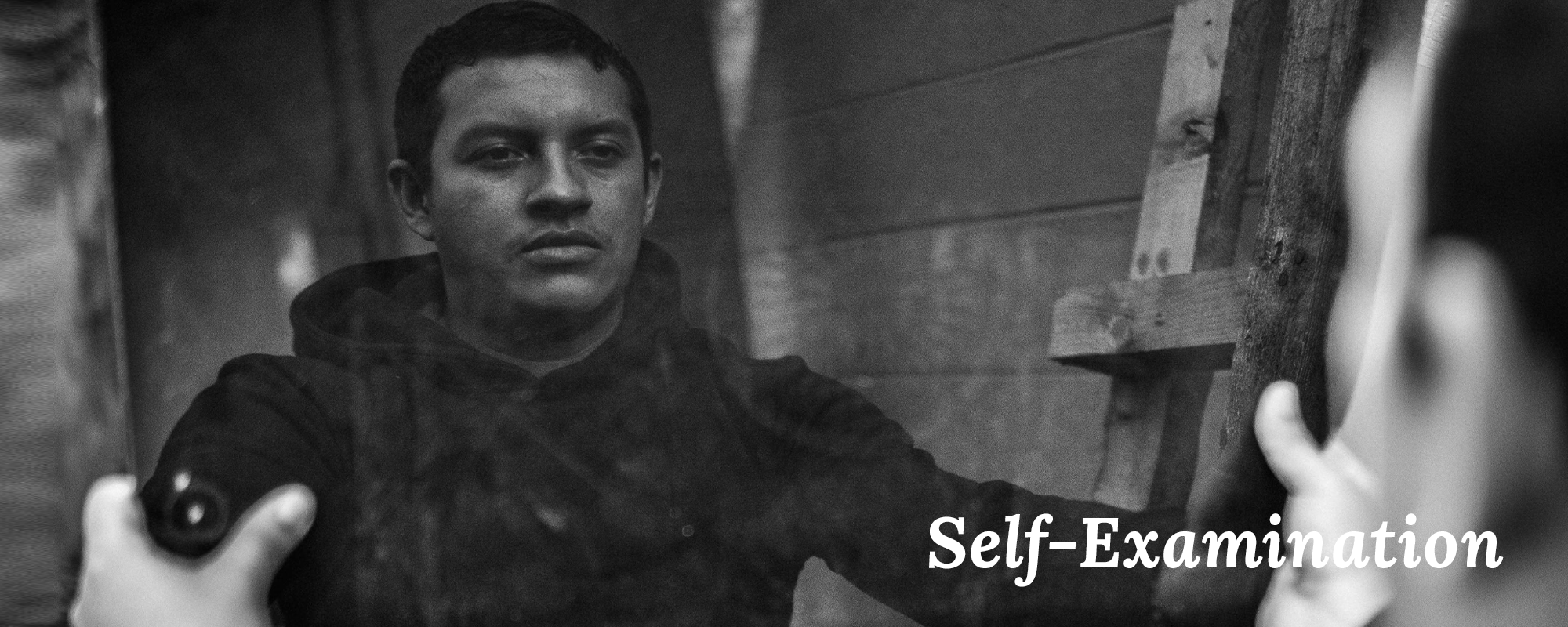Self-examination means we pause and check-in with our soul. And we ask our soul two questions: What are my patterns? And, do they increase well-being? Ultimately the practice of self-examination is a gift because it moves us from blindness to gaining new sight. Recent laundry commercials tell us about something called nose blind – where we smell a smell so often we get used to it and cease to be able to detect or describe it no matter how odorous. Self-examination invites us to consider the possibility of what we could call “soul-blindness,” or the inability to detect or describe the ways in which our soul is blind. Soul-blindness happens because of un-named or unprocessed pain or being overrun by fears or because of ignorance or unwillingness to reconsider convictions. The most pervasive example of soul-blindness is the ability to recognize flaws in everyone without being able to see our flaws. Jesus talked about the ability of seeing specks in others’ eyes while refusing to see the log in our own eye.
– An excerpt from Bishop Wright’s 5 Lenten Questions video series.
5 Lenten Questions with Bishop Rob Wright
Join Bishop Wright in a 5-part video series to help guide us during this season of sacrifice and self-examination.


